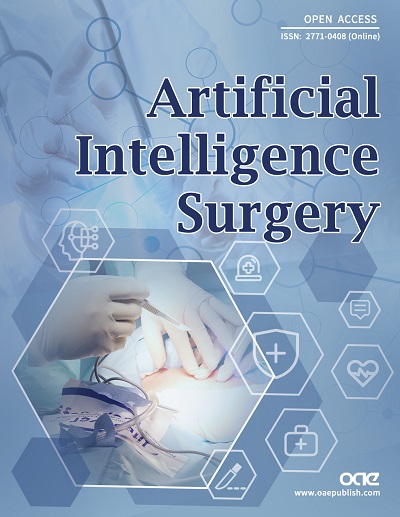Congratulations to Prof. Carla Pugh, the Editorial Board member of Artificial Intelligence Surgery, on being elected to the U.S. National Academy of Medicine
On October 18, 2021, the National Academy of Medicine in United States announced the list of newly elected members this year(National Academy of Medicine Elects 100 New Members). The Editorial Board member of Artificial Intelligence Surgery, Carla Pugh, Professor of Surgery at Stanford University and Director of Technology Enabled Clinical Improvement (T.E.C.I.) Center, was elected as a "Member of the National Academy of Medicine". Election to the Academy is considered one of the highest honors in the fields of health and medicine, which recognizes individuals who have demonstrated outstanding professional achievement and commitment to service.

Carla M. Pugh, MD, PhD, FACS, Professor of Surgery at Stanford University and Director of Technology Enabled Clinical Improvement (T.E.C.I.) Center. Pioneering in sensor technology research that helped to define, characterize, and inspire new and innovative performance metrics and data analysis strategies for the emerging field of digital health care.
The Editorial Office of the journal had the honor to interview Prof. Pugh and talk about the application of artificial intelligence in surgery and clinical medicine.
Here are some highlights for this interview:
1. The research Prof. Pugh and her team do is using sensor and motion tracking technology to qualify hands-on clinical skills and clinical medicine.
2. The potential of AI is the information exchanges among surgeons and provides some incredible efficiency and access to data.
3. Application of AI will allow more treatable information to share, not only help to look at surgical videos, but also build a platform for surgeons to give them the confidence to input, sharing their surgical judgment.
4. Allowing the efficiency of information exchanges and the platform, the surgeons need to share very precious and unshared details of the practice during complex operations.
Prof. Pugh's research on using artificial intelligence and advanced engineering technologies to clinical procedural skills and surgical education contributes to the development of surgery, providing innovative insights in this field continuously. As the first journal dedicated exclusively to artificial intelligence in surgery, Artificial Intelligence Surgery will continue to pay attention to new developments in the field and share new research results.
Let’s congratulate Prof. Pugh’s achievements again and look forward to her following research progress in this field in the near future.
The National Academy of Medicine, established in 1970 as the Institute of Medicine, is an independent organization of eminent professionals from diverse fields including health and medicine; the natural, social, and behavioral sciences; and beyond. It serves alongside the National Academy of Sciences and the National Academy of Engineering as an adviser to the nation and the international community. Through its domestic and global initiatives, the NAM works to address critical issues in health, medicine, and related policy and inspire positive action across sectors. The NAM collaborates closely with its peer academies and other divisions within the National Academies of Sciences, Engineering, and Medicine. With their election, NAM members make a commitment to volunteer their service in National Academies activities.
Respectfully submitted by the Editorial Office of Artificial Intelligence Surgery







